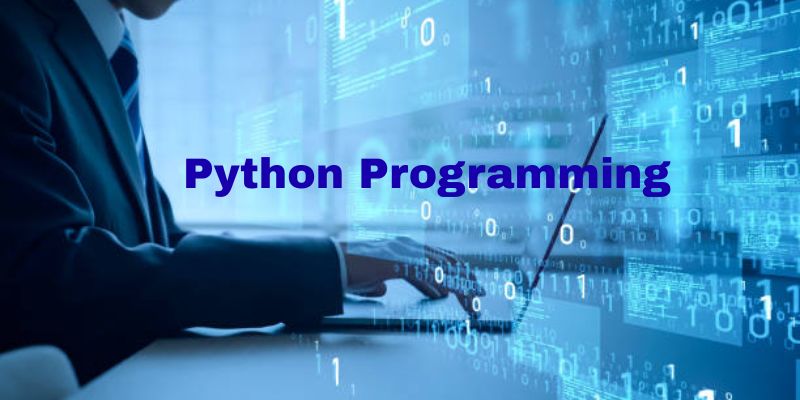
Programming languages play a crucial role in driving innovation and shaping the digital landscape. Among them, Python has established itself as a true powerhouse, known for its simplicity, flexibility, and exceptional performance. Its ability to adapt across various domains has made it the preferred choice for developers and organizations worldwide. From Artificial Intelligence (AI) and Machine Learning (ML) to Data Science, the Internet of Things (IoT), Cloud Computing, and Automation, Python continues to lead the way in next-generation technologies.
By enrolling in a Python Course in Bangalore at FITA Academy, learners can gain hands-on experience in these cutting-edge fields under expert guidance. The course provides practical exposure through real-world projects, helping students master essential coding skills and understand how Python powers modern innovations. Whether you aim to build intelligent systems, automate workflows, or analyze big data, Python serves as a gateway to endless opportunities.
Why Python Leads the Technological Revolution
Python’s popularity stems from its clean and intuitive syntax, which makes coding accessible to beginners while still offering advanced capabilities for professionals. Developers can quickly write, test, and deploy applications, allowing for faster innovation and reduced development time.
Another key factor behind Python’s dominance is its vast ecosystem of libraries and frameworks. Whether it’s TensorFlow and PyTorch for AI, Django and Flask for web development, or NumPy and Pandas for data analysis, Python offers specialized tools for nearly every technological domain. This strong ecosystem enables developers to focus on resolving practical issues instead of creating new ones.
Python keeps growing because it is open-source and has a strong community behind it. Developers from around the world work together to improve the language, build libraries, and share resources. This teamwork helps Python stay current and ready for the future. By joining a Python Course in Hyderabad, you can learn about these tools and community practices, giving you the skills and confidence to create new solutions.
Python in Artificial Intelligence and Machine Learning
Artificial intelligence and machine learning are revolutionising industries by making systems to analyse data and make informed decisions. Python plays a crucial role in this transformation. With libraries like Scikit-learn, Keras, TensorFlow, and PyTorch, developers can easily build and deploy predictive models, neural networks, and deep learning algorithms.
Python’s straightforward syntax allows developers to focus on algorithm design rather than complex code structures. Its seamless integration with data visualization tools helps transform raw data into actionable insights. From recommendation engines and voice recognition systems to self-driving vehicles and medical diagnostics, Python is the backbone of AI and ML innovation across multiple sectors.
Python’s Role in Data Science and Analytics
In the data-driven world, Python has become the language of choice for data scientists. It provides a full range of tools that streamline data collection, cleaning, analysis, and visualization. Libraries such as NumPy, Pandas, Matplotlib, and Seaborn empower professionals to extract meaningful patterns and insights from massive datasets. Enrolling in a Python Course in Delhi helps learners gain hands-on experience with these powerful libraries, enabling them to analyze data effectively and apply practical data science skills in real-world projects.
Python’s versatility allows it to integrate with big data frameworks like Apache Spark and connect seamlessly with SQL and NoSQL databases. Its capabilities enable organizations to make informed decisions, optimise operations, and predict future trends.
Python and the Internet of Things (IoT)
The Internet of Things (IoT) is another frontier where Python’s influence shines. As billions of smart devices become interconnected, Python provides the tools to develop, control, and analyze these systems efficiently. Frameworks like MicroPython and Raspberry Pi empower developers to create lightweight IoT applications that connect sensors, process real-time data, and automate everyday tasks.
Python’s ease of use and adaptability make it a great option for IoT-based automation, ranging from smart homes and wearable devices to industrial monitoring and environmental systems. Its ability to communicate with cloud platforms ensures seamless data management, security, and performance optimisation.
Python in Cloud Computing and Automation
Cloud computing is a vital part of modern IT, and Python plays a key role in building and managing cloud applications. A Python Course in Trivandrum helps learners master these skills efficiently. Its compatibility with platforms like AWS, Google Cloud, and Microsoft Azure allows developers to build scalable, secure, and efficient solutions.
Python also excels in automation, one of the most in-demand skills today. Using libraries like Boto3, Paramiko, and Fabric, businesses can automate server management, deployment, and data synchronization. This reduces manual effort, minimizes errors, and boosts productivity.
Python’s automation capabilities extend beyond IT operations. Companies leverage Python scripts for automating tasks such as data processing, testing, and reporting, allowing professionals to focus on more strategic goals.
Python in Web and Application Development
Python’s impact on web development continues to grow with frameworks such as Django, Flask, and FastAPI. These frameworks enable developers to build dynamic, secure, and scalable applications efficiently.
Startups and enterprises alike prefer Python for its flexibility and speed of development. It supports integration with various databases, APIs, and third-party resources, which makes it a great option for both small-scale web apps and large enterprise solutions. Python’s use in backend development also complements modern frontend frameworks, ensuring a seamless user experience.
The Expanding Future of Python
Python’s adaptability ensures its continued relevance as technologies evolve. Its application in robotics, cybersecurity, blockchain, and edge computing highlights its potential to shape the next wave of innovation. Moreover, its strong developer community and continuous updates guarantee that Python will remain at the forefront of the programming world.
Programming languages are essential for fostering creativity and shaping the digital future. Among them, Python has emerged as a powerhouse, simple yet incredibly powerful, flexible yet robust. Its influence extends across next-generation technologies such as Artificial Intelligence, Machine Learning, Data Science, the Internet of Things, Cloud Computing, and Automation. Enrolling in a Python Course in Chandigarh helps learners gain the skills needed to master these technologies, placing Python at the center of this technological transformation.
Also Check:
